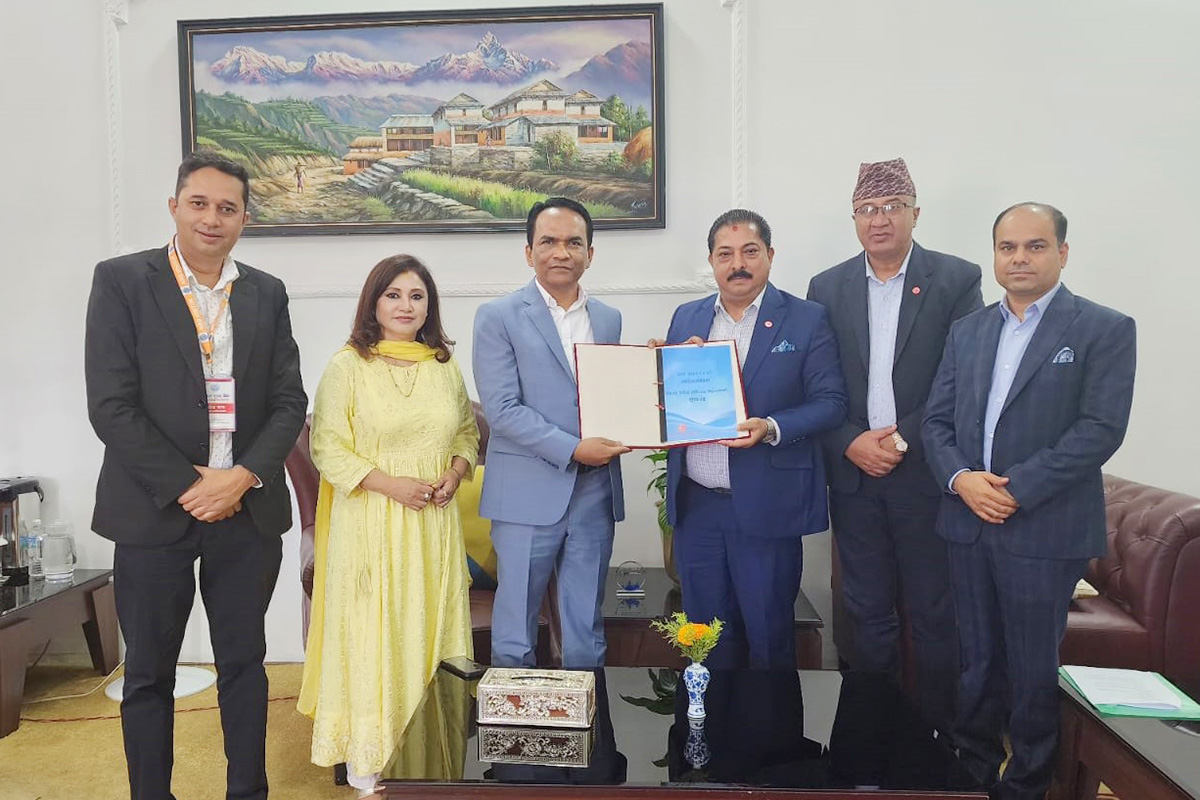
KATHMANDU: Federation of Nepalese Chambers of Commerce and Industry (FNCCI) on Tuesday submitted its recommendations on monetary policy for fiscal year 2025/26 to Nepal Rastra Bank (NRB).
A delegation led by FNCCI Acting President Anjan Shrestha met NRB Governor Biswo Nath Poudel to present proposals to accelerate the economy, boost private sector morale and mitigate money laundering risks amid an economic slowdown, financial sector vulnerabilities and large informal sector.
FNCCI urged NRB to adopt infrastructure-targeted monetary measures, noting that inadequate governance and poor infrastructure have undermined previous reforms.
It recommended concrete programmes to implement the budget’s loan-rescheduling and restructuring provisions for all businesses, regardless of size, and called for clear concessions on working capital flows and penalty interest.
To support productive industries, tourism, construction and housing developers, FNCCI proposed granting banks and borrowers discretion over working capital loans and setting industry lending rates 1%–2% below trade rates, given the sector’s share has fallen to 12.4%.
In view of Nepal’s graduation from least developed country (LDC) status in 2026, FNCCI called for concessional loans to micro, cottage, small and women-led export-oriented industries, an interest subsidy linked to production, and loans up to Rs 50 million at a maximum premium of 2%.
Additional suggestions included easing the Watch List provision, promoting youth entrepreneurship via the Nagarik app with project loans up to Rs 10 million, offering concessional credit to families of overseas remitters, and establishing asset management companies to tackle rising non-performing assets.
FNCCI also backed raising the housing loan ceiling from Rs 20 million to Rs 30 million, linking KYC to the National ID for electronic access, providing free interoperable QR codes, and allowing domestic remittances of up to Rs 100,000 through remittance firms on presentation of an identity card.
On overseas investment, it supported permitting Nepali firms to open sales outlets or processing plants abroad, invest up to 25% of their total exports overseas and receive sweat equity for technology or specialised services. FNCCI further requested that private equity and venture capital investments incur no additional capital charges and be recognised as directed sector loans.
On the occasion, FNCCI Vice Presidents Hem Raj Dhakal and Jyotsna Shrestha, along with Treasurer Bharat Raj Acharya, stressed the need for an effective monetary policy to address Nepal’s economic challenges and revitalise growth.






